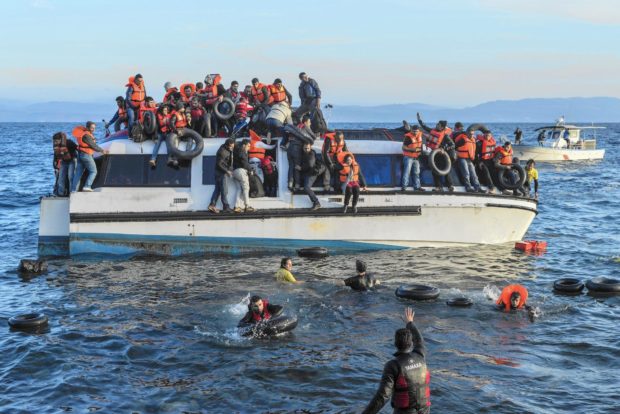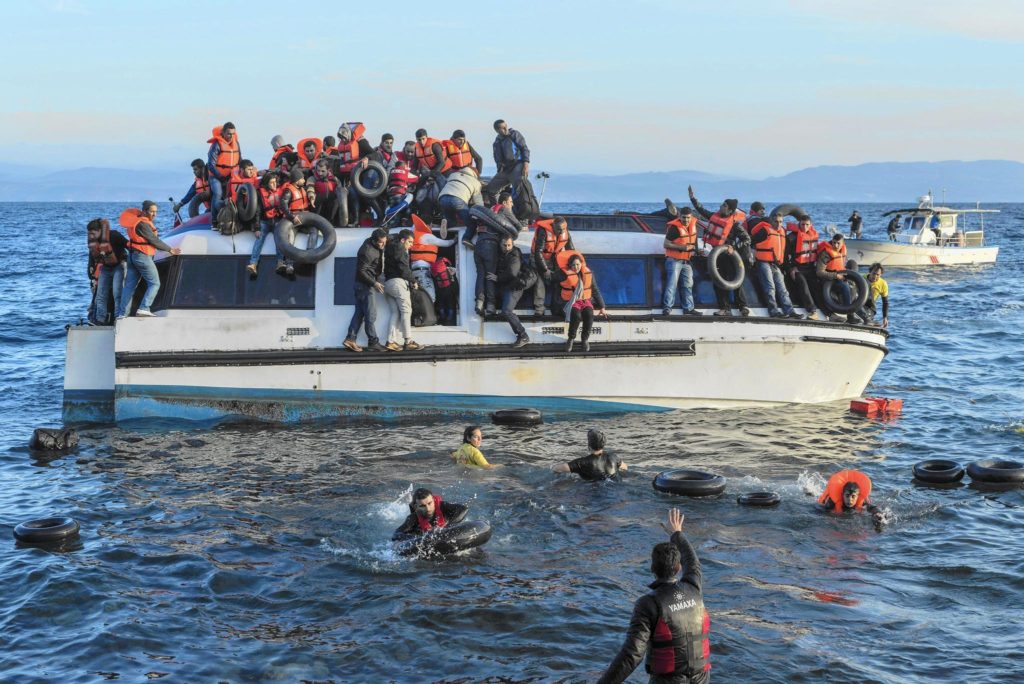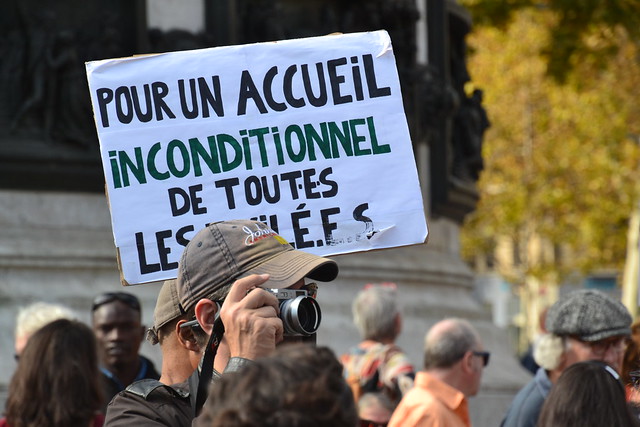Alfonso Casani – FUNCI
This last August, the Mediterranean Sea has made the headlines of most of the national and international newspapers, not only, as it’s common, because of the summer, but also due to the political crisis triggered by the Open Arms’ salvage ship and its request to dock in European ports after rescuing 124 people at sea. This request led to a deep European crisis that for 20 days has left the ship adrift.
Finally, on August 30th, its adventures (at least in this first stage) came to an end with the arrival of the seagoing vessel “Audaz” to Spain, which transported the 15 refugees that Spain had agreed to receive. The distribution of refugees among the different States was one of the reasons of conflict between the European States (finally, the 124 people rescued will be distributed between Luxembourg, France, Spain, Germany and Portugal), as was the choice of the port in which to dock (which also determines the country that will be in charge of the asylum proceedings). However, the main reason for conflict had a symbolic weight. As expressed by Matteo Salvini, Deputy Prime Minister of Italia: “Italy is not willing to be the gateway” to Europe’s immigration. Thus, this crisis has shown, once again, two facts.
First of all, the European Union’s lack of solidarity with the refugee population. No European country wants to become the bulwark of refugee reception, nor they want to be identified like that. If we look again at Salvini’s statements once it was made clear that the Open Arms wouldn’t dock in Italy, he expressed: “Good news. Whoever resists, wins. One against all. (…) The Spanish government opens its ports”.
Secondly, once again, we witness the lack of a coherent migration and asylum policy for the EU. Its institutions have repeatedly shown their lack of will to impose a solution to its member States. Not only they did not comply with the initial number of refugees’ to accept, but their half-hearted response to this summer’s crisis contributes to stress this image of indifference. This apathy contrasts with the aggressiveness of a xenophobia that spreads savagely across all the parliaments of Europe.
The Spanish government’s position is not very different, another reflection of the incoherence and indecision on how to face the refugee crisis.
The Spanish government’s position is not very different, another reflection of the incoherence and indecision on how to face the refugee crisis. The government’s reluctance to let the ship dock (it even threatened it with a fine of 901,000 € if they did), is not very different to the Right-wing opposition’s complains, with the Popular Party (the main opposition party) speaking of the dangers of a “call effect”, and VOX (the Spanish far-right party) sympathizing with the Italian policies. In fact, on August 29th, when the Spanish Vice-President Carmen Calvo explained the case to the Congress, VOX referred took the chance to refer to a “migratory wave”, their misuse of social benefits, the risk of “terrorist infiltration”, or, again, the “call effect” for refugees. Thus, it referred to all the same ghosts used by the European far-right to talk about immigration.
A legal duty to render assistance
However, as claimed by activists and a part of the press, these political positions clash with the international jurisdiction, and the duty to rescue at sea. It also clashes with the “right to life” claimed by the Universal Declaration of Human Rights and the Council of Europe’s European Convention on Human Rights, among many other conventions.
It also contradicts all the ethical and moral principles that Western democracies claim to represent. Not only are European countries turning their back on refugees, but we are also witnessing a real campaign of criminalization of the NGOs working in the Mediterranean Sea. Many of them have been forced to suspend their activities, while activists are judged under human trafficking charges. Such is the case of Spanish activist Helena Maleno in Morocco, or the trial against the three Spanish firemen working in rescuing activities in Greek’s waters. For now, fortunately, all of them have been absolved. In 2017, the former Spanish Ministry of Interior, Juan Ignacio Zoido, had to apologize for suggesting such a link. Today, two years later, we can see that these type of negative associations have not changed.
A well-known situation
It is not the first time that we witness this kind of situation, both regarding the difficulties faced by NGOs and, more importantly, the humanitarian crisis that we are living in the Mediterranean.
The UNHCR, the UN Refugee Agency, estimates that, approximately, 2,277 people died in the Mediterranean in 2018. In the current 2019, despite a decrease in deaths, we still have reached the horrifying number of 894 deaths. In fact, on August 27th, while we celebrated the “solution” of the Open Arms crises, the Libyan authorities informed of a new shipwreck that had left, they believed, at least 40 deaths.
Un #11Oct de 2013 al menos 268 personas murieron ahogadas cerca de Lampedusa después de que autoridades de Italia y Malta no acudieran a su rescate, pese a recibir varias llamadas de socorro. Cinco años después seguimos igual o incluso peor. pic.twitter.com/dIDTs91yIj
— CEAR (@CEARefugio) October 11, 2018
Already in 2013, a recording leaked by the Italian journal L’Espresso showed how the Maltese and Italian authorities refused to rescue a shipwreck. Their reluctance to act and their efforts to pass the issue to the opposite coastal authority led to the tragic death of the 268 people that were on the boat. Despite the more positive ending, the situation lived this summer is not very different from that of 2013. Six years later, the attitude of the European governments hasn’t changed.
We live in a growingly interdependent world, in which borders should be more porous and open. And in spite of this, governments are growing more selfish and individualistic. If we want to change this situation, and for the response to refugees to be different, we do not only need a law reform, but also an ethical and moral transformation, as well as a more critical population that won’t allow their governments to continue implementing political policies that neglect the humanitarian crisis in the Mediterranean.

















No Comments